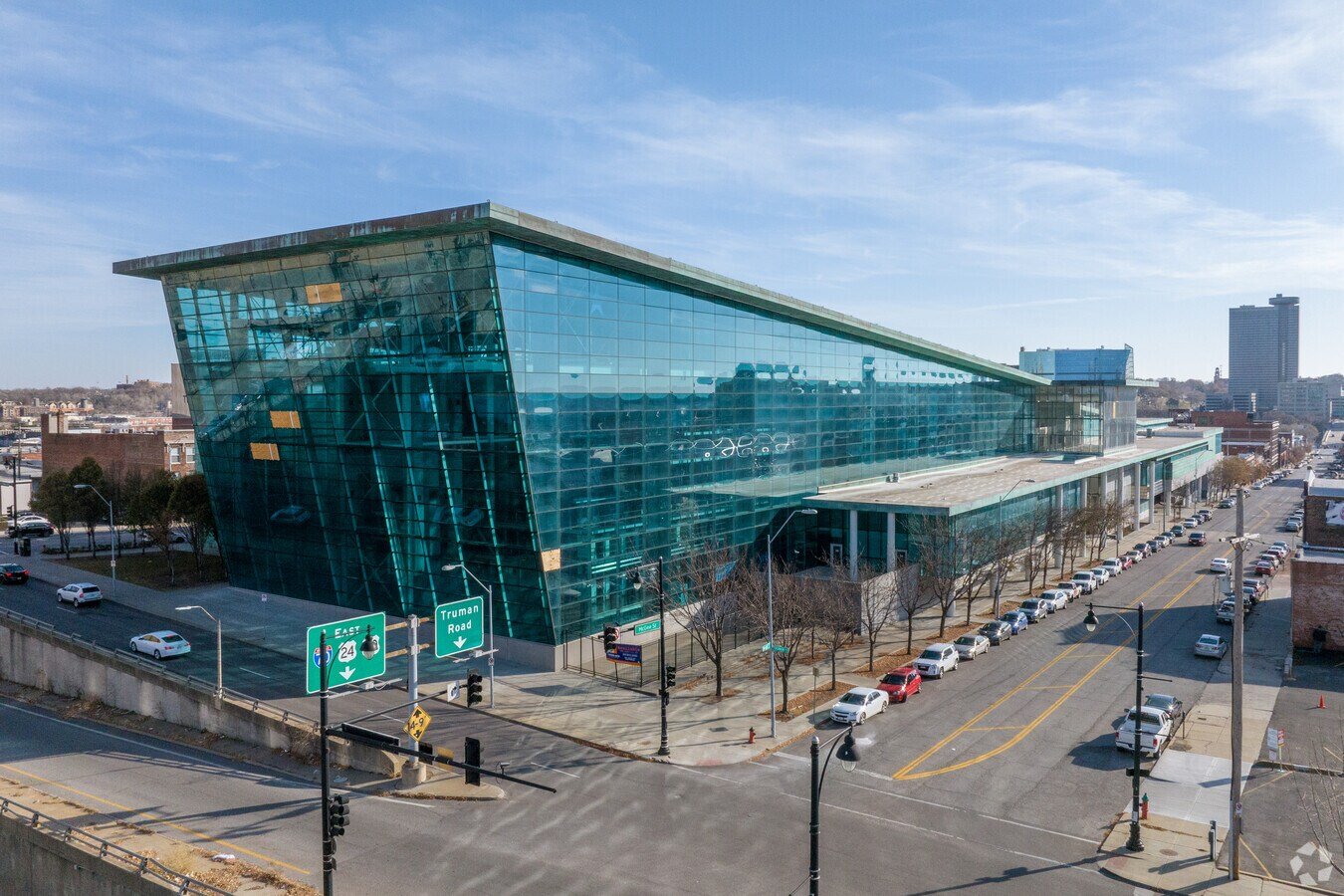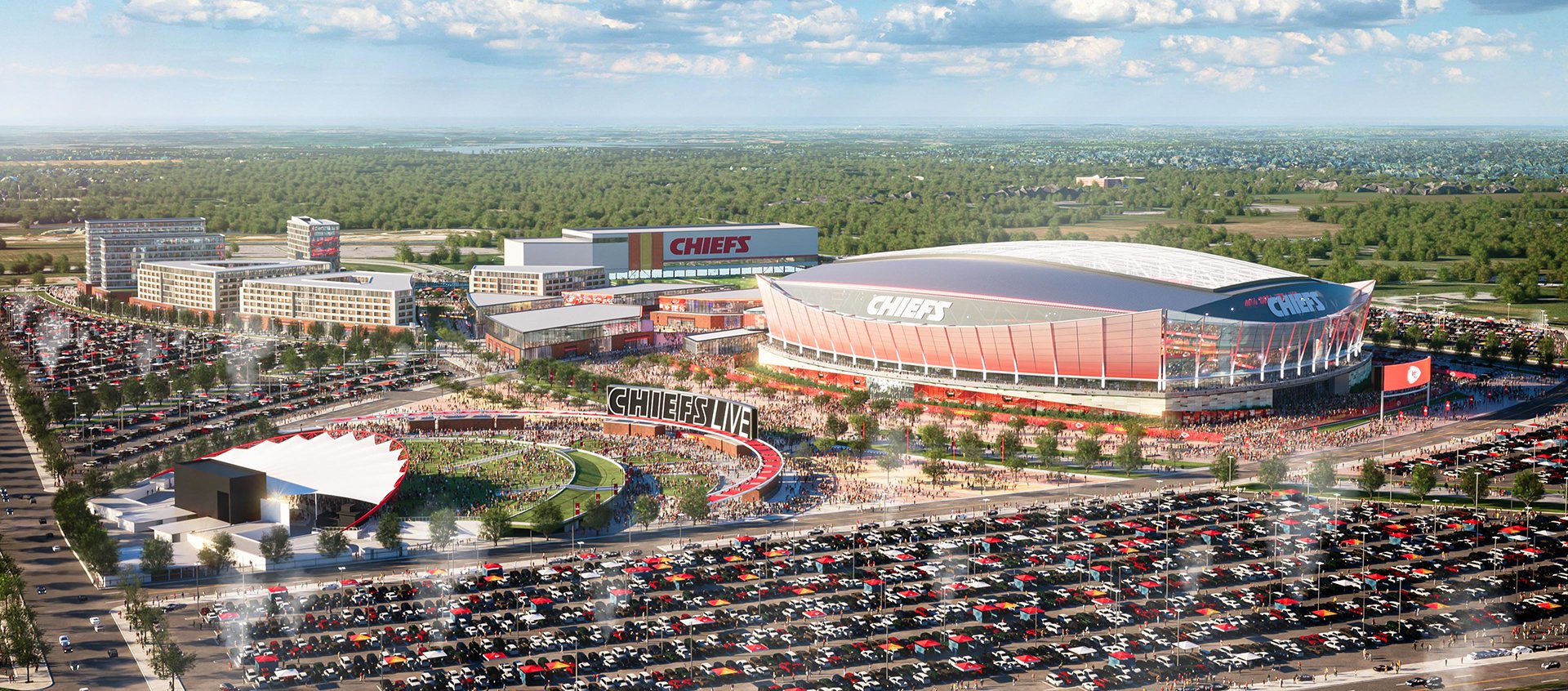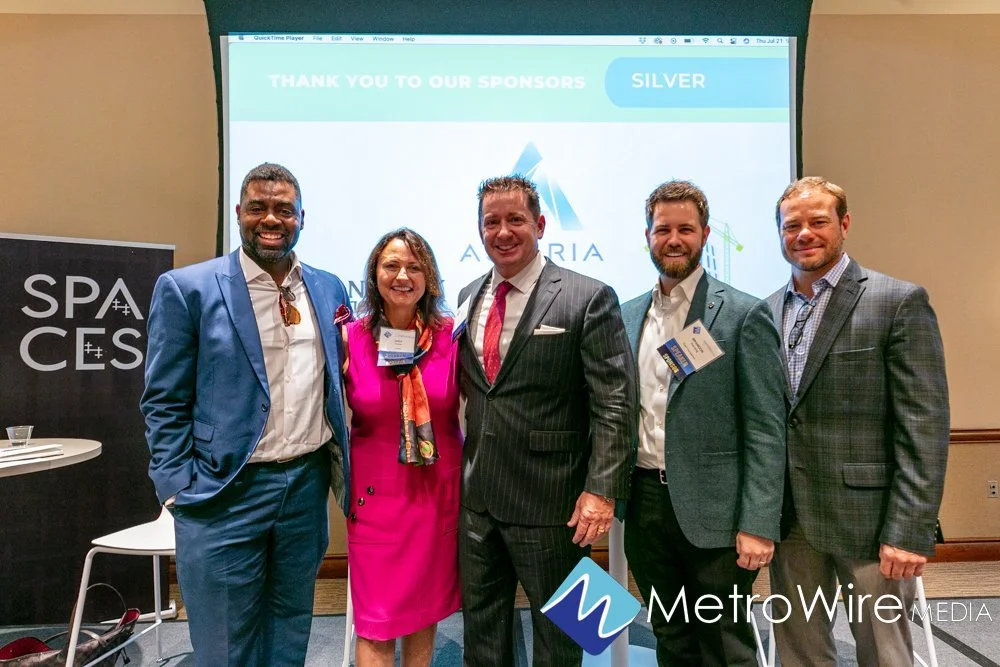Featured rendering credit: Hoefer Welker
Panelists agree creating communities that attract is where it's at
Innovative ideas prove pivotal to Aspiria's tenant growth
TreviPay to relocate corporate headquarters to Aspiria campus
Next month, TreviPay will relocate its corporate headquarters to the 207-acre Aspiria campus located on 119th Street and Nall Avenue in Overland Park, Kan.
TreviPay, a global B2B payments company, signed a 73,000-SF lease at the expanding, former Sprint World Headquarters campus.
“TreviPay’s move to Aspiria represents a big step for the Aspiria campus. The campus has so much to offer in the way of technology, amenities, access, security and sheer size. All of these contribute to a company’s ability to attract and retain top talent nationally to fulfill their growth strategies,” said Chad Stafford, Occidental Management president and broker of the lease transaction.
The announcement comes on the heels of a full-scale rebrand in March of this year for the Overland Park-based fintech company. The new brand reflects its role as the preferred B2B payment provider for leading Fortune 500 companies and small- to mid-sized businesses.
“The Aspiria Campus is a perfect location for TreviPay’s Global Headquarters. The new location allows our more than 400 Kansas City-area employees to be in one location,” said TreviPay’s CEO, Brandon Spear.
Aspiria offers unparalleled amenities, 24/7 security that includes over 600 cameras continuously monitoring the campus, and a world-class building automation system with intelligence software to manage and enhance operational efficiencies across the engineering platform.
In addition to high-end security and technology, Aspiria’s amenities promote employee recruitment and retention. Along with the walking and biking trails around campus, the 68,000–SF Aspiria Fitness Center is available at no monthly cost to all employees at Aspiria.
Beautiful green spaces across Aspiria are available for outdoor meetings and events, and three conference centers around campus are available for onsite meetings for groups large or small. The campus also features coffee shops and cafes as well as a central hub boasting a full-service cafeteria with a range of culinary options in a modern and energetic atmosphere.
“Aspiria has seen rapid growth with the addition of new tenants like TreviPay, Yellow Corp., CreativeOne, and TTEC Holdings,” Stafford said. “This is only the beginning. We recognize the need that large companies have for secure, advanced, and amenity-rich space to grow and win the talent battle in today’s market. Aspiria offers this, and more, in a way that no other corporate campus in the Midwest can.”
Occidental Management plans to develop an additional 60 acres surrounding the campus at the corner of 119th Street and Nall Avenue. Aspiria will have an additional one million SF of Class A office space, 380,000 SF of mixed-use retail and restaurant space, a 120-room hotel and 600 multifamily units, creating a truly inclusive hub of life and business in the Midwest.
Design planning on the long-term project has already begun, and space is available for lease in the New Offices At Aspiria. TreviPay expects to occupy the space in October 2021.
About TreviPay: TreviPay is a global financial technology company specializing in the complete digitization of B2B payments through secure trade financing to drive enhanced customer loyalty. We support merchants by streamlining the purchasing experience and supporting increased customer interaction in B2B Commerce, facilitating $6 billion USD in transactions per year in 18 currencies for customers in more than 27 countries. To learn more about TreviPay, please visit TreviPay.com.
MWM panelists agree: 2020 inspired new opportunities for 2021
Nearly 100 Kansas City-area commercial real estate professionals gathered at Stone Pillar Vineyard & Winery on Wednesday for MWM’s annual KC Market Forecast event.
The event was moderated by Randy Bredar, executive vice president and Kansas City office director of JE Dunn Construction; featuring panelists Sheryl Vickers, CCIM, CEO and vice president of project partnerships of Select Sites LLC, president of Complete Construction Service and co-founder of Women in Real Estate Development (WIRED); Rob Welker, president and partner of Hoefer Wysocki; and Chad Stafford, president of Occidental Management, Inc.
Lessons from 2020:
As a solopreneur, Vickers emphasized how the past year has reminded her of the importance of having a source of passive income when a crisis arises.
The pandemic created opportunities for Vickers to turn long-term rentals into short-term AirBnB rentals because customers preferred to stay in places with fewer people, opposed to large hotels.
“It provides relief in times like this. I feel poised with an expanded network to grow exponentially,” Vickers said.
Thanks to Stafford’s aggressive approach at Occidental Management, his company was able to provide tenants with expanded resources in information and services.
“The past year did cost us some leasing deals so we had to do a hard pivot to engage with our tenants. We hired a marketing firm to help. It’s all about communication,” Stafford said.
For Welker the past year created opportunities for new activities, including launching a plumbing/electrical unit and using the PPP funds to hire new staff.
“The biggest thing for us was getting back in touch with clients. We started a daily executive council ‘happy hour’ to share information and knowledge and act as a sounding board. We didn’t hide; we outreached and outreached and outreached some more. The key, though, is that outreach has to have value,” Welker said.
Thanks to being designated as an essential business, JE Dunn “kept going,” said Bredar.
“We used 2020 as an opportunity and could cherry-pick new people (to hire). Some markets were very active; one was logistics and transportation. KC is positioned very well in those areas for the new year,” Bredar said.
Somewhat surprisingly, the commercial vacancy rate decreased last year, Welker noted.
“Companies that we represent in multifamily are suddenly all involved. Logistics more than doubled over every other sector in the industrial market. I think that trend will continue as more companies get into the omni-channel,” Welker said.
Not surprisingly, business for retail and restaurants fared the worst in 2020.
“A lot more (retail and restaurants) will close this year before it all comes back in the fall; however, a small handful are expanding. The national chains are doing well, especially if they already had drive-throughs and delivery services. It’s a struggle for those that are not omni-channel or used to being online,” Vickers said.
Perspectives on the new year:
Vickers expects that restaurants that can provide outdoor dining and maintain online ordering and delivery service will do well in 2021.
“They won’t go back,” Vickers said. “We will see stability. There’s pent-up demand and the restaurant sector will do better by the fourth quarter and into 2022.”
Calling the current moment “a good time to build,” Bredar predicted “an explosion in demand that might lead to inflation.”
“Multifamily has been on a long run, but might see more supply than the market can absorb,” Bredar said.
Welker’s experience has been that “Johnson County restaurants are packed.” He’s also “seeing a new phase of retail” that should lead to an explosion of new building.
“Multifamily is catching up from the past few years, and that will continue in some demographics. The trend will be toward smaller units,” Welker said.
Vickers believes that trend will depend on the pocket of demographics.
“There is an affordable-housing crisis now, but I’m optimistic about that sector bouncing back. I’d put my money on midtown or the center of the city,” Vickers said.
Vickers noted that the KC Streetcar project is having an impact on commercial real estate in the downtwon area.
“People are buying up properties” to profit from it, and that project will “cause some down-time with construction, but multifamily building is already occurring. We’ll have to work through the legislative and neighborhood pieces. Inclusion and diversity will help with reducing pushback and problems with gentrification,” Vickers said.
The streetcar project is “not developer-friendly,” though, according to Bredar, “so it’s a concern. We’ll need collaboration and mentoring to know the tipping point of going back to what (the area) used to be a lot of empty commercial space.”
The future of commercial space is an open question for the moment. Vickers expects that people will “adapt and change the space. Half of the people are scared and half are ready to go back to using space as before,” Vickers said.
The panel agreed more attention needs to go towards balancing the live-work-play concept; however, office productivity has been a challenge.
“We aren’t getting the best from our people by having everyone work from home, so they’ll be back in offices soon,” Welker said.
“We will have flexibility, (but) you can’t build corporate culture over Zoom or a vibrant environment without group space to (connect in person and) promote growth,” Stafford said.
“We’re looking at a longer timeline — an 18-month timeline for Aspiria (the former Sprint campus)— we have to be engaging now because we’re looking to June or July when the vaccines are available,” said Stafford.
When asked what will trigger new business in the new year, panelists found several points of optimism.
“The pandemic is making the industry do things smarter,” Welker said.
Bredar pointed out that healthcare has been and will continue to be an important part of the commercial market in Kansas City, especially now that hospitals can return to doing elective procedures that the pandemic put on hold for much of 2020.
Panelists agreed smaller healthcare facilities in more locations are likely to be a trend for 2021.
“We’re seeing hospitals becoming more a part of communities. The economics make a big difference,” Welker said.
Bredar also sees technology as a major factor in new building patterns by making it possible to build commercial properties that are more efficient.
Panelists agreed that the KCI (airport) project should have a hugely positive impact on commercial real estate in the Kansas City region.
“The airport is like the front door for the city,” said Welker. “Institutional money has started to flow into the city and we’re super-excited. We’ll be seeing new buildings going up as professional services workers return.”
Vickers expects walkable communities to be drivers for the commercial real estate sector — “If it isn’t walkable, I wouldn’t invest” — and industrial to be “the next big area.”
“The public sector will be interesting to watch because the need is there,” Bredar said.
Welker agreed that the development side of public-private partnerships (PPPs) should be big this year to capitalize on that need for space and services, although TIFFs might suffer.
“New development will be slow until the third quarter, and then will be robust. We all have to have hope, believe in ourselves, stay united and make things happen,” Welker said.
A huge thank you to the event sponsors: JE Dunn, McClure, Hoefer Wysocki, Seal-O-Matic Paving Company, Contegra Construction, Occidental Management and Arch Photo KC.
To view photos from the event, please visit the MWM facebook page.








